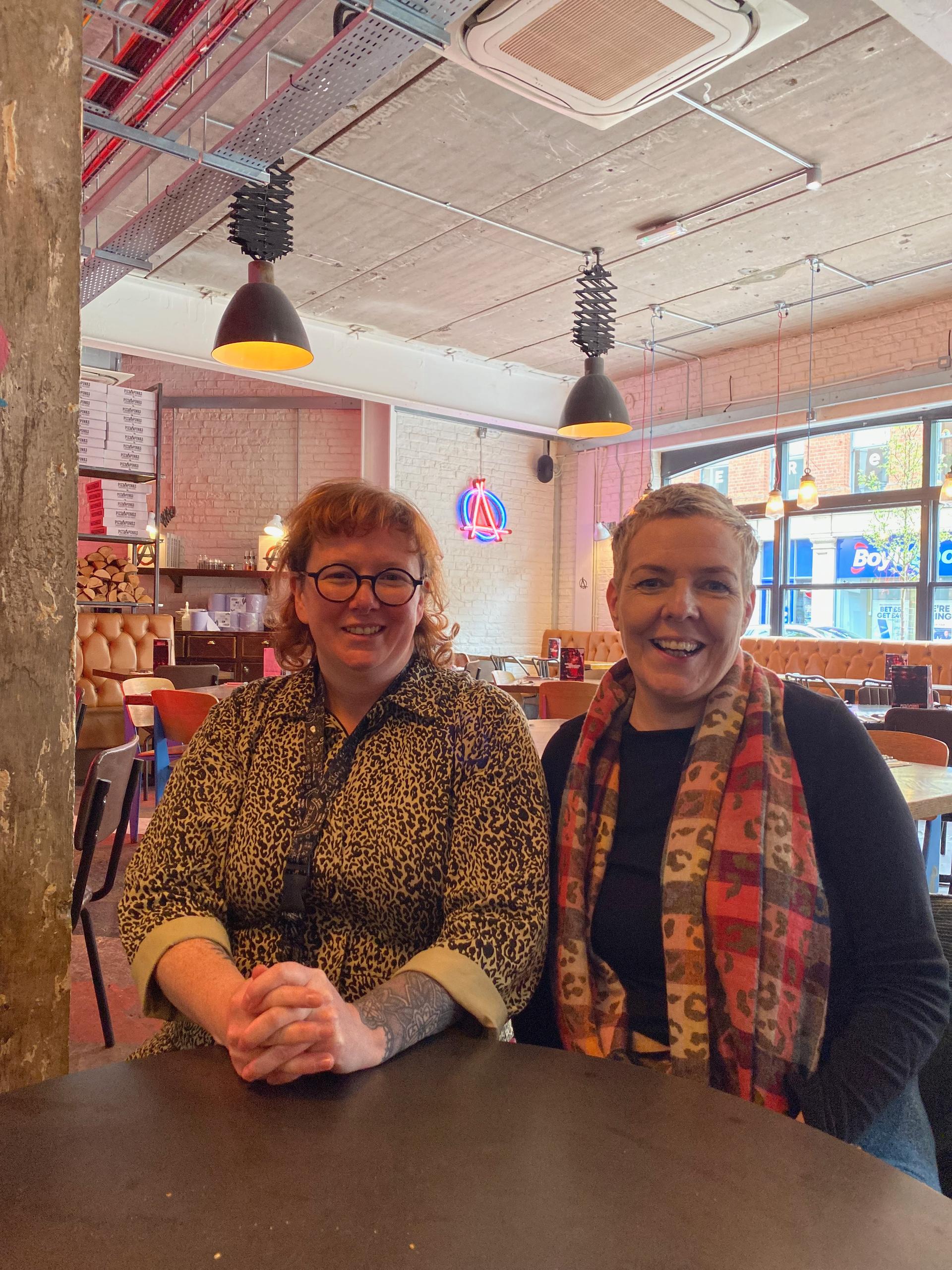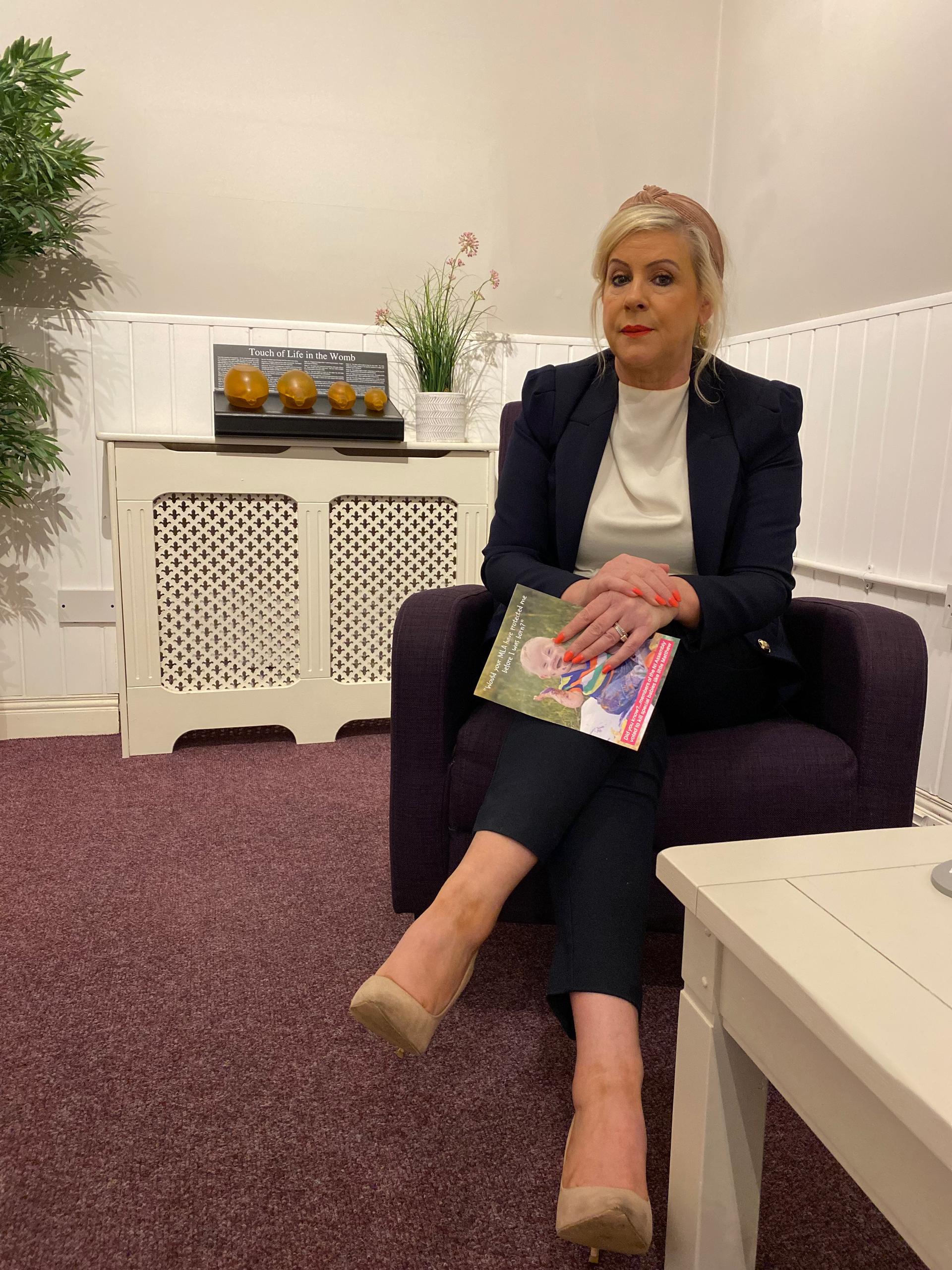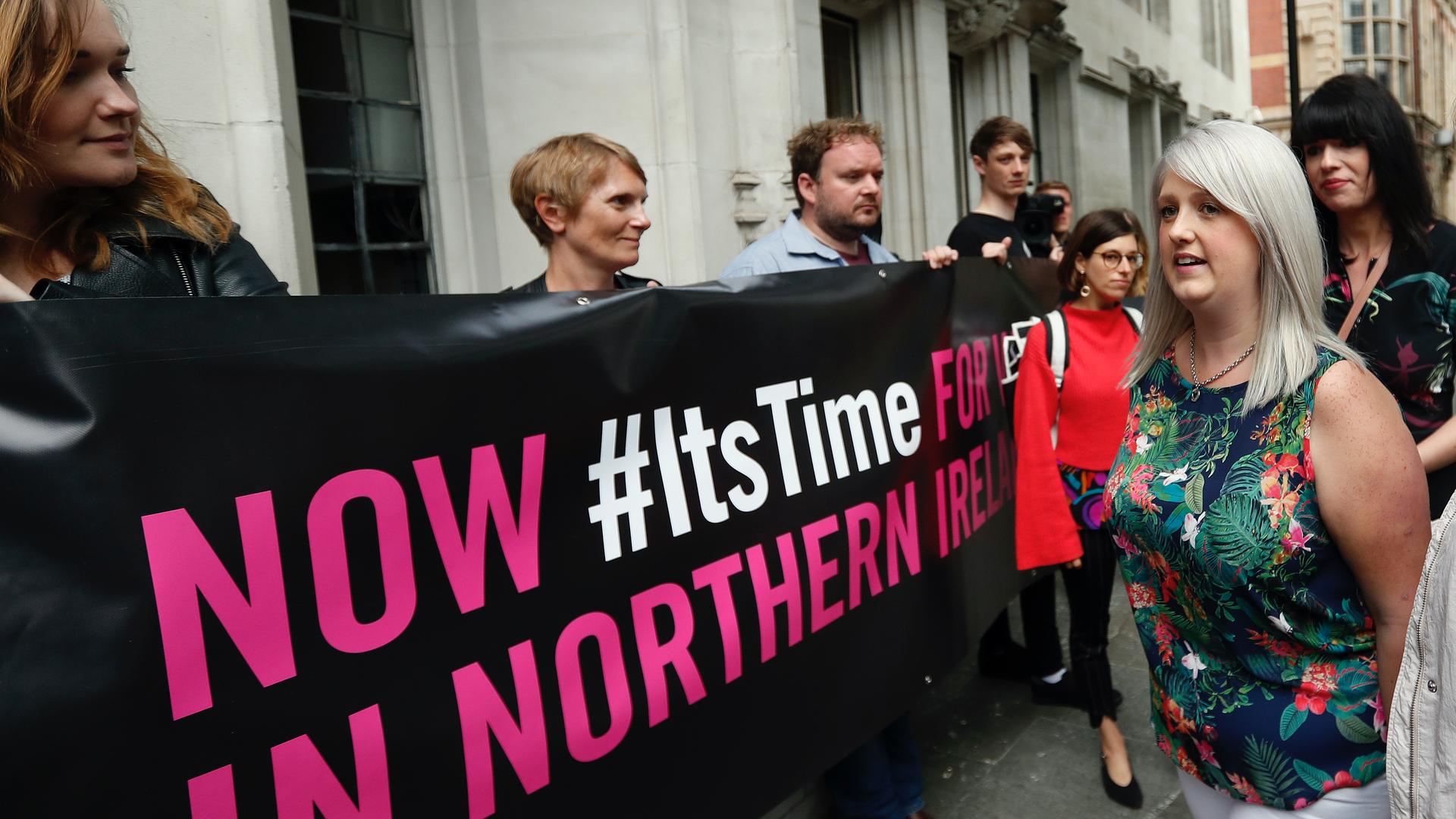Eight years ago, Naomi Connor traveled from Ireland to England to access abortion services.
“It probably cost around £1,100 ($1,400) because I had to fund the flights and the procedure. At least I had a credit card, but I was thinking about the women and pregnant people who didn’t,” Connor recalled. “It was a law that heavily impacted the most marginalized.”
Related: Roe v. Wade highlights the important role of high courts in democratic societies
She’s referring to the 1967 Abortion Act, which permitted doctors in England, Scotland and Wales to allow access to safe, legal abortions up to 24 weeks into a pregnancy. This legislation was never extended to Northern Ireland due to the power of religious and social conservatives, prompting thousands of people to travel on boats and ferries, mainly to England, to get an abortion.
Northern Ireland’s power-sharing government was set up after the 1998 Good Friday Agreement. The major parties — Sinn Fein and the Democratic Unionist Party — have frequently let disagreements lead to government shutdowns. It was during one such shutdown in 2019 that an amendment to decriminalize abortion was passed by Parliament in London.
But three years later, abortion is still difficult to access, as the service has not been centrally commissioned by the Northern Irish Health Minister Robin Swann. This means that abortions are provided on an ad-hoc basis and in some regions, not at all. Swann has claimed that the conservative DUP has blocked proposals.

Connor, who now works for the abortion rights campaign group Alliance for Choice, said that the restrictions have left a painful legacy.
“The reality is that women are going to have abortions whether people like it or not. I think the biggest thing is that women had to do it in secrecy with a deep, pervasive sense of stigma, worry and shame if anyone found out.”
“The reality is that women are going to have abortions whether people like it or not. I think the biggest thing is that women had to do it in secrecy with a deep, pervasive sense of stigma, worry and shame if anyone found out,” added Connor, noting that the only other options were going through with an unwanted pregnancy or an abortion by “backstreet means.”
Related: India’s abortion law still lacks a rights-based approach, gynecologist says
Until a few years ago, numerous women in Northern Ireland were prosecuted for purchasing abortion pills. The maximum sentence for carrying out an abortion was life imprisonment.
Dr. Fiona Bloomer, a specialist on abortion policy at Ulster University, in Belfast, Northern Ireland, said that underfunding puts a strain on medical professionals.
“The abortion providers are doing this on top of their additional duties, and they don’t have the full resources that they need,” Bloomer said. “We’re essentially having a service that’s being operated on the basis of their goodwill.”
Bloomer said that conservative politicians put people in Northern Ireland at risk, particularly when COVID-19 hit. Surgical abortions were still not available, and not everyone could access pills online.
“At the height of the pandemic, women and pregnant people still had to travel to a clinic or to England where they don’t know the staff, don’t know the area and are far away from family and emotional support,” she said.
In the year after the new policy went into effect, 63 abortions were performed in Northern Irish hospitals, a two-thirds increase from the previous year. Anti-abortion campaigners, such as Bernadette Smyth, were dismayed.
“We were outraged,” Smyth said. “Our government was undermined. The people were undermined.”
Smyth is the founder of an advocacy group called Precious Life; its office in central Belfast is adorned with motivational quotes and rubber models of wombs. Smyth has been campaigning against abortion for three decades.
“Abortion isn’t health care, so there was no need for abortion to be implemented here by our existing government,” Smyth asserted. “In Northern Ireland, we still maintain that pro-life culture, unlike the rest of the UK where you can have three, four, five abortions and it becomes part of the culture because it’s legal.”
Related: This Polish activist sent abortion pills to a woman in need. Now she’s on trial.
Smyth said that despite the law change, she’s not backing down, especially now that the US Supreme Court looks set to make a major reversal on abortion.
“While I have breath, I will continue, and then hand the baton to another generation.”

But Mick Fealty, editor of influential political news website Slugger O’Toole, said that the next generation may not hold the same beliefs.
“Northern Ireland has come from a place of deep social conservatism, but that’s no longer on the march here, it’s on the retreat.”
“Northern Ireland has come from a place of deep social conservatism, but that’s no longer on the march here, it’s on the retreat.”
Historically, this region is divided between Catholics and Protestants. Religious leaders from both traditions tend to be anti-abortion. But a major survey on social attitudes in Northern Ireland recently revealed that a third of the population said that they don’t belong to either religion.
“I think that third group is going to increasingly have a disproportionate influence on the future direction of Northern Ireland,” Fealty said.
The British government is becoming increasingly impatient with Northern Ireland’s recaltitrance on the abortion issue and has indicated it would take legal steps to commission services in the coming weeks if there was no sign of progress.
Nevertheless, Connor, the abortion rights activist, said that the developments in the US are only adding to the sense of urgency in Northern Ireland.
“We are always going to have to be vigilant. Always. We never take the justice, the rights, the access for granted,” she cautioned. “The moment you start taking it for granted is the moment that it can slip away.”
Our coverage reaches millions each week, but only a small fraction of listeners contribute to sustain our program. We still need 224 more people to donate $100 or $10/monthly to unlock our $67,000 match. Will you help us get there today?
